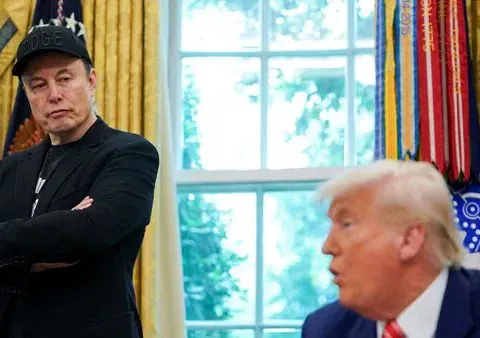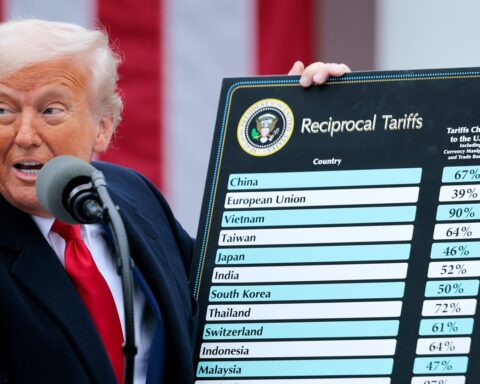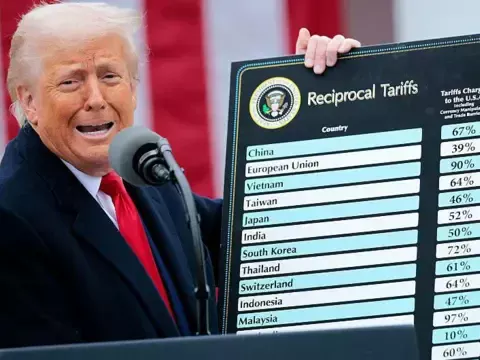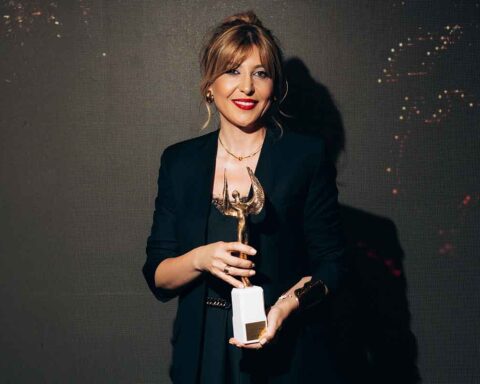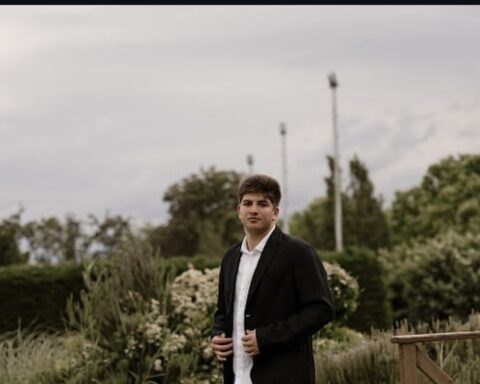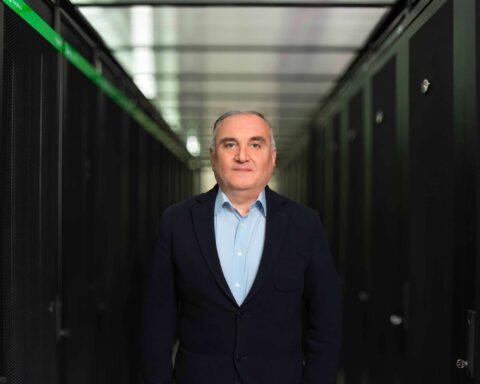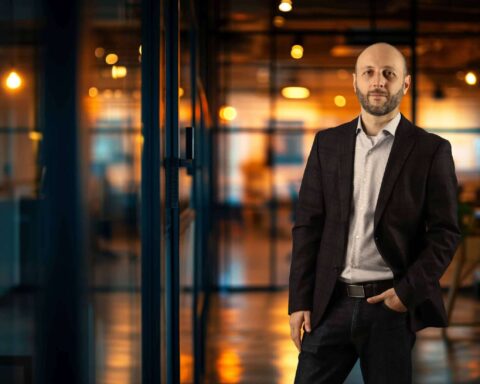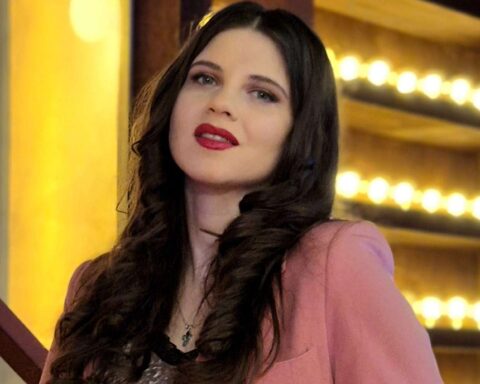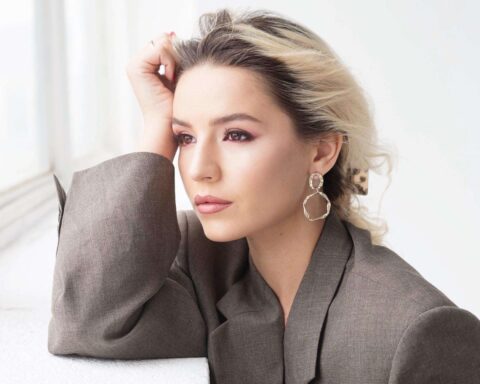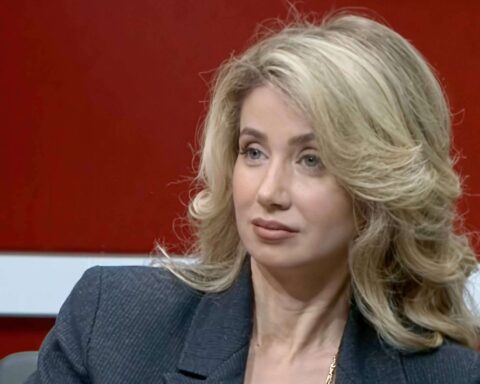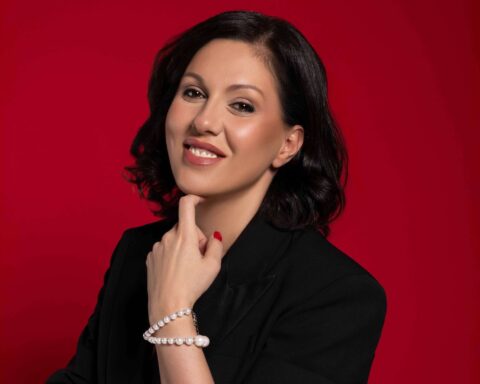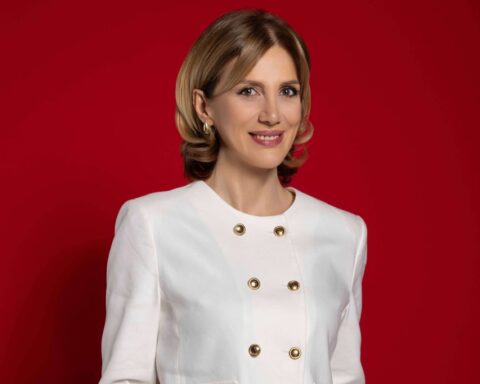The New York trial of former U.S. President Donald Trump is set to resume Tuesday with the court hearing arguments on whether Trump violated a gag order prohibiting him from disparaging witnesses and key figures in the case.
Testimony is also expected to resume with David Pecker, the former publisher of the popular grocery store tabloid, the National Enquirer, returning to the witness stand after being the first person called to testify by the prosecution.
Prosecutor Matthew Colangelo described Monday what he called a “Trump Tower conspiracy” involving Pecker, Trump and former Trump lawyer Michael Cohen plotting to keep damaging stories about Trump from being published ahead of the 2016 presidential election.
“We used checkbook journalism, and we paid for stories,” Pecker told jurors of his time at the National Enquirer. Pecker said he had “final say” over editorial decisions and that anything over $10,000 for a story had to be approved by him.
Prosecutors allege the tabloid paid model Karen McDougal, who says she had a 10-month affair with Trump, $150,000 to buy the rights to her story and then did not publish it.
In opening arguments Monday, Colangelo laid out a wide-ranging plot he says Trump orchestrated to keep voters from learning, just days before the election, about Trump’s alleged affairs with McDougal and porn film star Stormy Daniels, both of which Trump has denied.
Colangelo said that from the evidence he plans to produce, the jurors would reach “only one conclusion: Donald Trump is guilty of 34 counts of falsifying business records in the first degree,” to reimburse Cohen for the $130,000 he paid to Daniels to keep her quiet.
Trump pleaded not guilty to the 34 charges.
Trump’s defense attorney, Todd Blanche, told the jurors, “President Trump is innocent. President Trump did not commit any crimes. He is cloaked in innocence.”
Blanche dismissed the prosecutor’s account as misleading and untrue, telling jurors, “I have a spoiler alert: There’s nothing wrong with trying to influence an election.”
“It’s called democracy,” Blanche said.
Blanche told the jurors that the money paid to Cohen was not to reimburse him for the $130,000 in hush money Cohen claims he paid to Daniels, but rather legal fees Cohen was owed. Cohen has turned against his former boss and is expected to be a key witness for the prosecution.
New York Supreme Court Justice Juan Merchan ruled Monday that if Trump decides to testify at the trial, prosecutors will be allowed to ask him questions about his previous civil cases in which he was ordered to pay hundreds of millions of dollars in damages.
Ultimately, it will be up to Trump to decide whether to take the witness stand after listening to his lawyers’ advice.
The New York case is one of an unprecedented four criminal indictments Trump is facing, encompassing 88 charges, all of which he has denied. The hush money trial, however, could be the only one that occurs before the November election.
Two of the other indictments — one state and one federal — accuse him of illegally trying to upend his 2020 loss, while the third alleges he illegally took hundreds of highly classified national security documents with him to his Florida estate when his presidential term ended, and then refused requests by investigators to return them.
No firm trial dates have been set in any of those three cases, and Trump has sought to push the start dates to after the November election.
Since Trump is required to be in court, the hush money case almost certainly will limit his time on the campaign trail as he runs for the second time against Biden.
Altering his company’s ledgers would be a misdemeanor offense, but to convict Trump of a more serious felony, prosecutors will have to convince jurors he committed an underlying crime, such as trying to influence the outcome of the 2016 election by keeping information about the alleged affairs from voters.
It is not illegal to pay hush money, and Trump may claim the payments were made simply to avoid disclosure of personally compromising moments of his life, not to try to influence the 2016 election.





